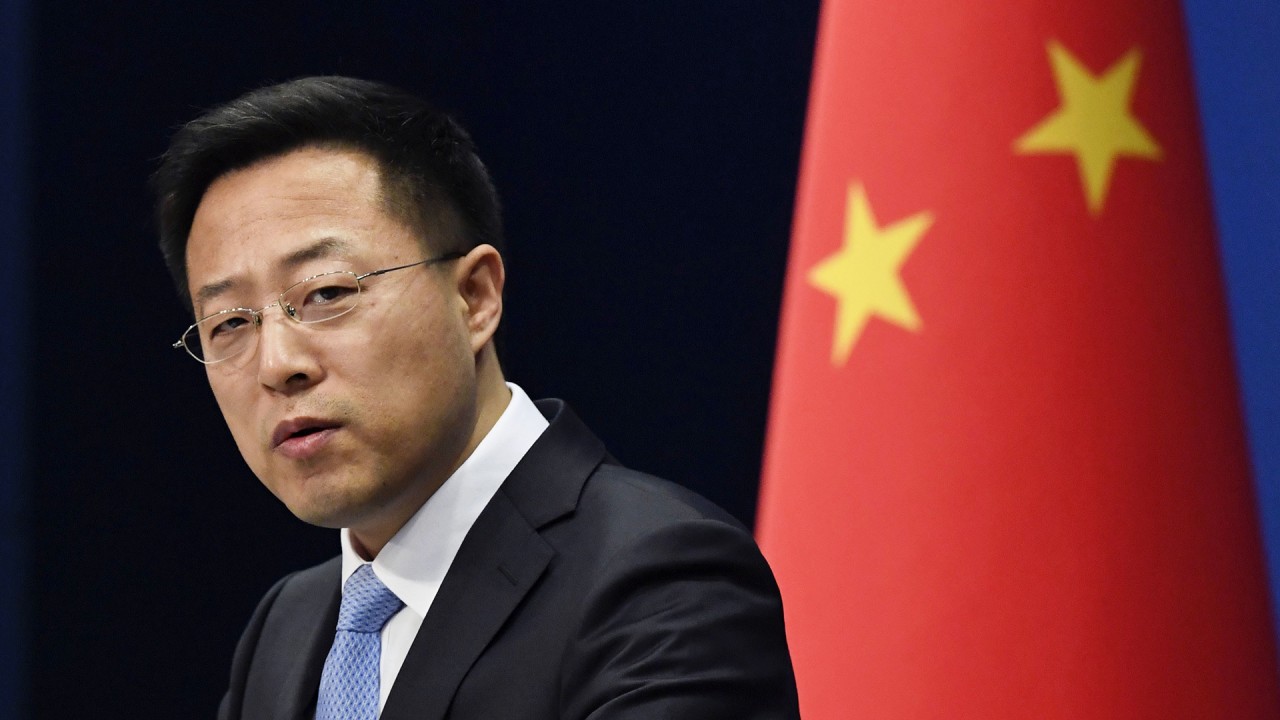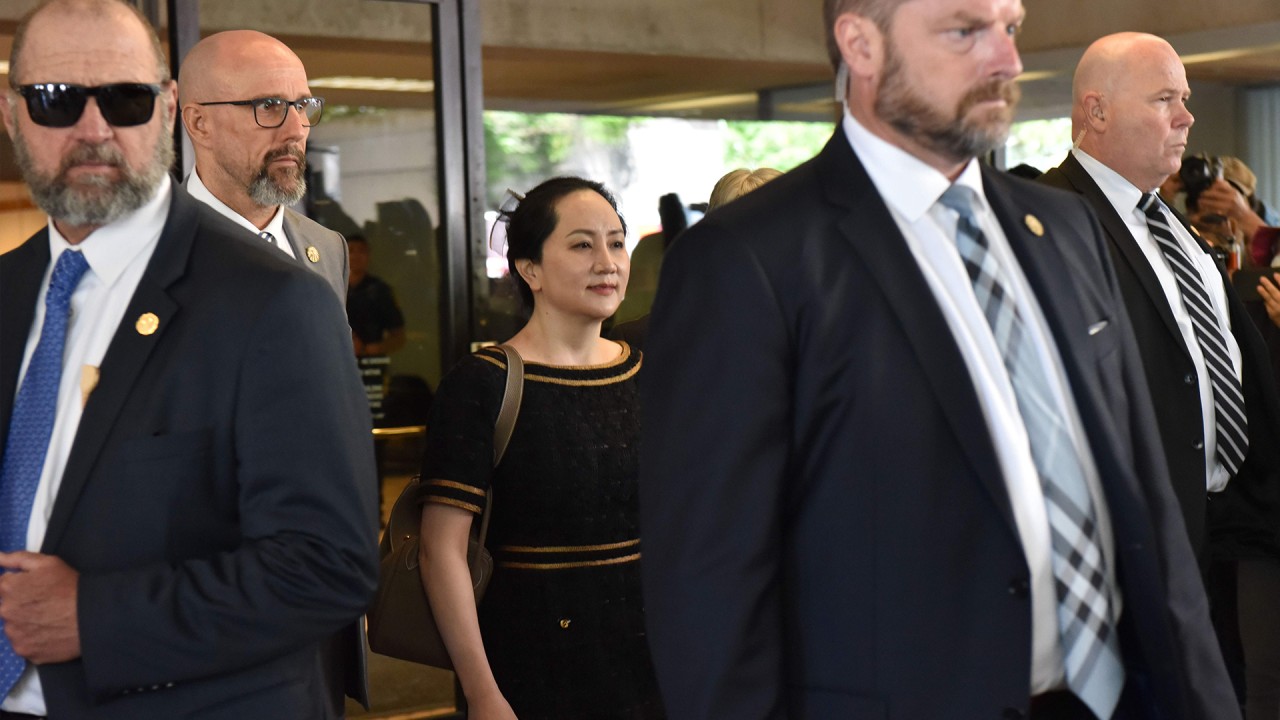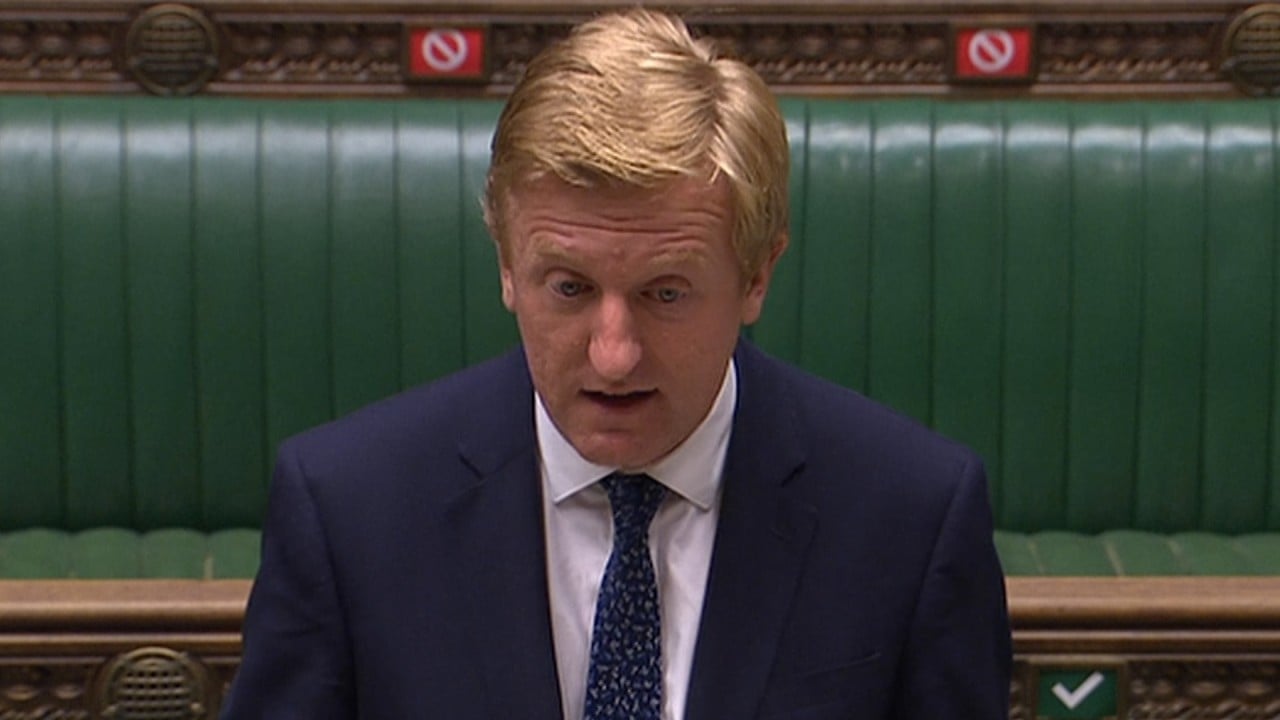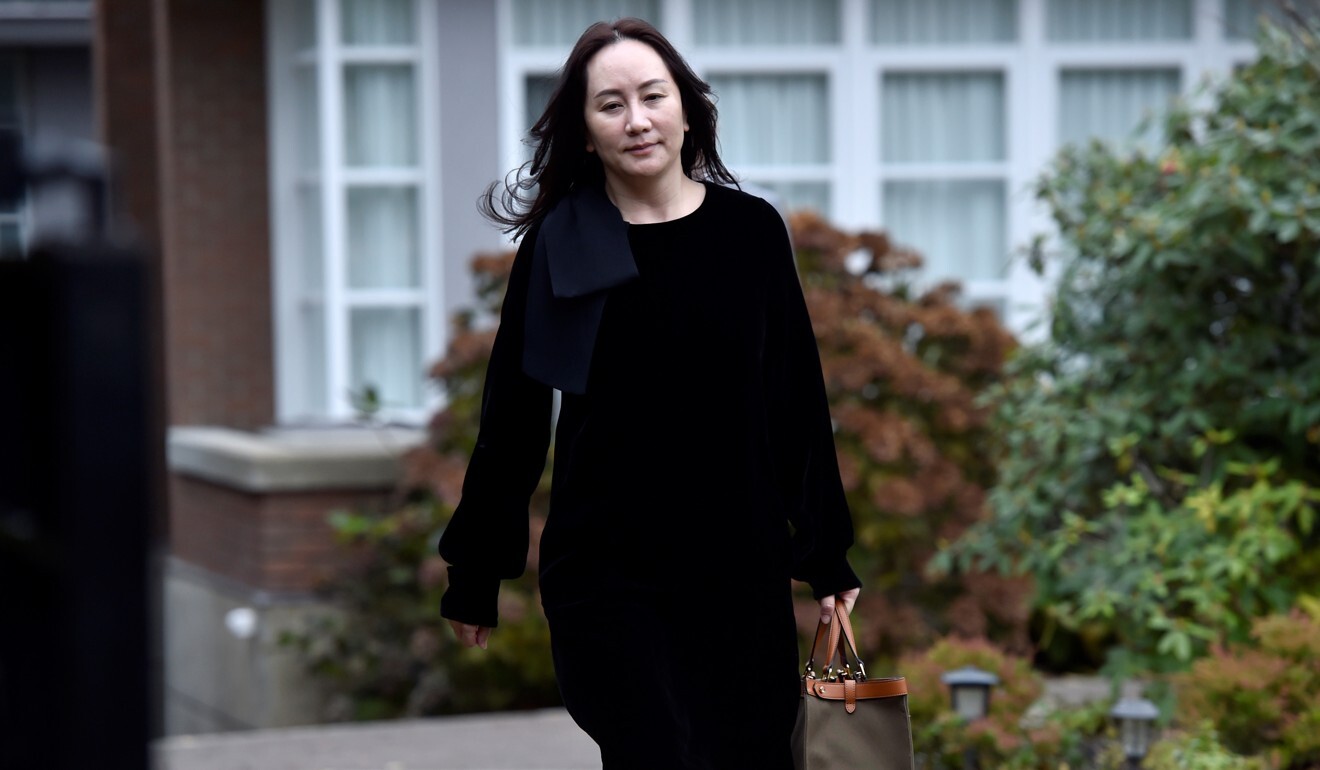
Retired Canadian police officer refuses to testify at Meng Wanzhou’s extradition hearing
- Ben Chang, a former RCMP staff sergeant, has retained outside counsel and been advised not to appear – ‘a matter of some concern’, Meng’s lawyers say
- Court hears that the Huawei chief financial officer may still be a permanent Canadian resident – despite her attempt to relinquish that status 18 years ago
A retired Canadian police officer is refusing to testify at Huawei Technologies executive Meng Wanzhou’s extradition hearing in Vancouver, amid claims by Meng’s lawyers that Canadian authorities were involved in a covert evidence-gathering exercise against her at the behest of American law enforcement.
Ben Chang, a former Royal Canadian Mounted Police (RCMP) staff sergeant, has retained outside counsel and has been advised not to appear at the hearings, which resumed in the Supreme Court of British Columbia on Monday, Meng’s lead counsel Richard Peck told Associate Chief Justice Heather Holmes.
The refusal was a “matter of some concern”, Peck said.
Chang was involved in email conversations with Sherri Onks, the legal attaché in Vancouver for the US Federal Bureau of Investigation, on December 1, 2018, the day of Meng’s arrest, according to Meng’s lawyers.
Chang also received a phone call from “a Chinese minister” following Meng’s arrest, Meng’s lawyers say.

00:54
Trudeau rejects releasing Meng Wanzhou to free detained Canadians in China
Also on Monday, the court heard that Meng may still be a permanent resident of Canada – despite her attempt to relinquish that status 18 years ago.
The rules under which the relinquishment was made were redundant and had no legal force, according to a Canadian border agency email read in court. Meng’s legal team has been trying to show that Meng’s examination by border agents was unjustified; had Meng been identified as a permanent resident, it might have influenced whether that examination should have proceeded.
Meng’s lawyers have depicted various interactions between RCMP officers and the FBI as evidence that Meng’s treatment on the day of her arrest at Vancouver’s airport was intended to gather evidence for her prosecution in the US.
Meng, who is Huawei’s chief financial officer and a daughter of founder Ren Zhengfei, is accused by US authorities of defrauding HSBC by lying about Huawei’s business dealings in Iran, exposing the bank to the risk of breaching US sanctions on the Middle East country. Meng denies the charges.
Border agent calls giving police Meng’s passwords a ‘heart-wrenching’ error
Chang had said in an affidavit that he “believes” the FBI requested “identifying information from the electronic devices seized from Ms Meng”.
But he also said in the affidavit that “[as] I was never asked for the identifying information by [any] member of the FBI, or any other member of any other United States authorities, this information was never shared”.
Meng’s lawyers called this a “boilerplate denial”.
Chang did not explain where his initial “belief” about an FBI request came from, they said.

01:06
China says detained Canadians should be held responsible for ‘the crime of spying’
Meng was searched and questioned by the Canada Border Services Agency (CBSA) and her electronic devices were seized in the three hours before her arrest by the RCMP; that delay was in defiance of a warrant that said she should be arrested “immediately”, her lawyers say.
This, they argue, was an abuse of process and Meng’s Canadian charter rights; thus, they contend, the US request to have her extradited to New York to go on trial for fraud should be thrown out as a result.
In October, the Supreme Court of British Columbia heard testimony from a series of witnesses, including the RCMP officer who arrested her, and one of the CBSA officers who conducted the disputed border examination and seized her electronic devices and passwords.
That CBSA officer, Scott Kirkland, had told the court that he passed on a note with Meng’s passwords to the RCMP by mistake, a breach of Canada’s privacy law. It was, he said, an “embarrassing” and “heart-wrenching” mistake.
Meng’s treatment since her arrival in Canada almost two years ago has infuriated Beijing, sending China’s relations with Canada and the US into a downward spiral.

00:38
Huawei executive Meng Wanzhou leaves Canadian court after legal setback
Soon after her detention, Beijing arrested Canadians Michael Spavor and Michael Kovrig, accusing them of spying. In Canada, their situation is widely seen as a reprisal action, their detention regarded as hostage-taking.
Meng is under partial house arrest in Vancouver, living in one of her two homes in the city. Her extradition proceedings are expected to last well into next year, but appeals could drag out the process much longer.
Also on Monday, a Canadian border officer came under cross-examination from another of Meng’s lawyers, Mona Duckett, as witness testimony resumed.
Huawei’s Meng wins a small victory in quest to quash US extradition
Bryce McRae, a CBSA superintendent, testified last month that before the day that Meng arrived at Vancouver’s airport and was arrested, he had been unaware she was on her way to Canada.
On Monday, McRae described his attempts on December 1, 2018, to determine whether Meng was still a permanent resident of Canada, a status she obtained in 2001 but sought to relinquish the next year.
Duckett cited CBSA activity logs from that day stating that a superintendent at the airport “could not determine subject’s status” and was seeking help from Ottawa to do so. McRae acknowledged that he was the superintendent and that the subject was Meng.

02:27
UK bans Huawei from 5G network after US sanctions
Duckett then cited an internal CBSA email dated December 5, 2018, that concluded Meng was believed to still be a permanent resident.
The attempts by Meng to surrender that status had no legal basis, and “therefore the client is a PR”, said Duckett, reading from the email, which did not include McRae as a correspondent.
The “voluntary relinquishment process” – undertaken by Meng from June 28, 2002, until November that year – had occurred under redundant rules and therefore had “no legal effect” on Meng’s status, McRae said, reading from the same email.
Canada border officer delivers blow to Meng Wanzhou’s claim of covert plot
CBSA Superintendent Sanjit Dhillon, one of the officers who questioned Meng, was next on the stand.
He told crown counsel Diba Majzub - representing US interests in the case – that he had concerns that day that the fact there was a warrant for Meng’s arrest suggested she may have been inadmissible to Canada on the grounds of criminality.
This criminality concern, while not “definitive”, was the basis for Meng’s border examination, Dhillon said.
Dhillon said that before the examination, he read about Meng and Huawei on Wikipedia, including “espionage and security concerns”.

When Meng wanted to know why her examination was taking so long, Dhillon “interjected” with questions about Huawei. “I asked what she did for work … just to get her comfortable,” he said.
He then asked where Huawei sold its products as a way of broaching the espionage issue. Eventually, Meng said “security concerns” prevented the sale of Huawei products in the US. Her demeanour became “closed off”, he said.
Dhillon denied being asked by anyone to ask these questions of Meng.
In a previous sworn declaration, Dhillon said that he also asked Meng whether Huawei sold products in Iran.
The hearing was adjourned until Tuesday afternoon.
In a statement issued on Monday afternoon, Huawei Canada said last month’s hearings had “revealed important information about the details of Meng Wanzhou’s arrest and the motivation behind it”.
“Huawei continues to have great confidence in both Ms. Meng’s innocence and the integrity of the Canadian judicial system. The truth is coming out,” it said.

